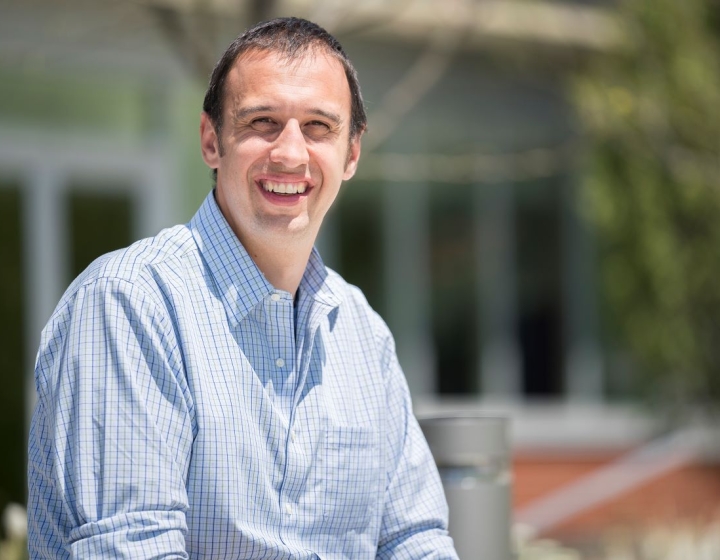Ph.D. student lands three fellowships in three months to combat nerve disorders
 In his effort to address the needs of underserved communities in health and education, Christopher Blackwood, a doctoral student in the area of pharmacology, has landed three major fellowship awards in three months to support his research into how the brain creates new neurons.
In his effort to address the needs of underserved communities in health and education, Christopher Blackwood, a doctoral student in the area of pharmacology, has landed three major fellowship awards in three months to support his research into how the brain creates new neurons.
Blackwood hopes his work will contribute to new therapies for such neurodegenerative disorders as Alzheimer's and Parkinson's diseases, that disproportionately affect minority communities.
This year Blackwood was one of only 20 students across the nation to receive the prestigious Ford Dissertation Fellowship for 2011, which not only provides a stipend and travel expenses, but also opportunities to confer with former Ford fellows.
"Meeting the other current and former Ford fellows is an incredible opportunity to learn from my peers, exchange ideas and forge future partnerships," said Blackwood.
Blackwood also has received the Cornell Provost's Diversity Fellowship for 2011 and a Kirschstein research award to promote diversity in health-related research from the National Institutes of Health.
A first-generation minority college student, Blackwood was one of four children raised by a single mother in the Bronx, where economic and educational disparities regularly affected his life. After graduating from Clark Atlanta University, he came to Cornell's Department of Biomedical Sciences in 2007 to study neurogenesis.
"Producing new neurons is critical to the function and development of the brain. I study how signaling pathways regulate this process," said Blackwood. "This has important implications for neurodegenerative diseases, in which neurons are progressively lost. For example, by the year 2050, an estimated 150 million people will suffer from Alzheimer's disease. If we could learn how to increase the production of neurons to compensate for dying brain cells, we may be able to provide new therapies. I hope my research can address health disparities such as neurodegenerative diseases that disproportionately affect marginalized communities."
Committed to serving underrepresented communities in education as well as science, Blackwood has worked with Cornell's Office of Minority Educational Affairs to hire undergraduate minority students in his lab. He has recruited several budding scientists, some of whom are already engaged in independent research.
 "The best science comes from diverse minds," said Blackwood. "In the future I hope to apply my expertise to develop mentorship, recruitment and retention programs for underrepresented minority students. I feel blessed to pursue a Ph.D. at Cornell, to have the credentials to achieve these goals, to speak up about the factors that are detrimental to success and to use my research and teaching to potentially remedy destructive diseases."
"The best science comes from diverse minds," said Blackwood. "In the future I hope to apply my expertise to develop mentorship, recruitment and retention programs for underrepresented minority students. I feel blessed to pursue a Ph.D. at Cornell, to have the credentials to achieve these goals, to speak up about the factors that are detrimental to success and to use my research and teaching to potentially remedy destructive diseases."
Blackwood's latest award, from the University of California-San Francisco, will send him to their two-day "Postdoc Bootcamp" in June to learn how to navigate the next tier of a typical research career. The selective workshop for faculty-nominated Ph.D. students in the life sciences will cover strategies for finding postdoctoral positions and keeping a career on track.





